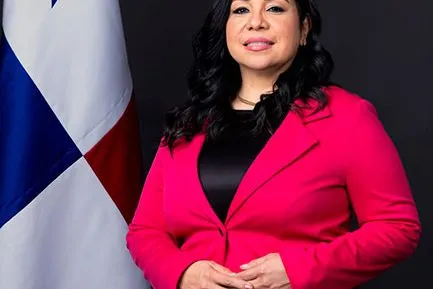The National Customs Authority of Panama has terminated more than 200 employees since the start of a new administrative purge. Customs Director Soraya Valdivieso announced the mass dismissals this week as part of a broader initiative to eradicate corruption and restore institutional integrity. The agency has also referred multiple criminal cases to prosecutors for formal investigation.
Valdivieso explained that the separations resulted from two primary factors. Some officials faced dismissal for their direct involvement in corrupt acts, while others lost their positions because they lacked the necessary qualifications and suitability for their roles. This aggressive staffing overhaul signals a significant shift in operational philosophy for the powerful revenue collection agency.
“When it comes to corruption, I have a firm hand. There is zero opportunity for it. Whoever commits it, pays for it immediately, because that is the only way to set an example,” Valdivieso stated. [Translated from Spanish]
The director confirmed that her administration is cooperating fully with the country’s Public Ministry on several fronts. Multiple corruption cases detected through internal audits have already been forwarded for criminal investigation. Additional administrative proceedings remain active within the Customs administration itself.
Systemic Reform Under New Leadership
This represents one of the most substantial personnel cleanups in recent memory for a Panamanian government institution. Valdivieso’s appointment last year came with a clear mandate from the Government of Panama to transform the customs service. The agency plays a critical role in trade facilitation and national security, processing billions of dollars in goods annually through the strategically important Panama Canal route.
Observers note these actions align with President Laurentino Cortizo’s repeated promises to combat graft within public institutions. The administration has faced public pressure to demonstrate tangible results in its anti-corruption drive. Previous efforts have often stalled or produced limited visible outcomes, making the scale of these dismissals particularly noteworthy.
“There are several corruption cases that I have also sent to the Public Ministry along with some other ongoing investigations,” Valdivieso clarified. [Translated from Spanish]
The customs director Soraya Valdivieso has previously emphasized technology implementation as a key component of her reform strategy. Her tenure has seen the advancement of container scanning systems and other non-intrusive inspection equipment at key ports of entry. These technological tools help reduce human intervention in cargo processing, thereby limiting opportunities for illicit activities.
Broader Implications for Panama’s Governance
This sweeping personnel action occurs against a backdrop of ongoing international scrutiny regarding transparency in Panama. The country has worked to improve its global standing on anti-corruption indexes and financial transparency reports. A more credible and efficient customs operation directly impacts trade efficiency and national revenue collection, two areas vital for economic stability.
The dismissed officials held various positions across the agency’s operational structure. Their removal creates significant organizational change within an institution that employs thousands nationwide. Management now faces the dual challenge of maintaining operational continuity while integrating new personnel into a culture demanding higher ethical standards.
Valdivieso reiterated her commitment to building a management framework based on ethics, discipline, and efficiency. She identified these principles as fundamental to the national government’s effort to regain public trust in state institutions. Many citizens remain skeptical about the government’s ability to root out entrenched corruption networks.
Further personnel and procedural changes are expected as the agency continues its internal review process. The customs service plays too vital a role in Panama’s economy to allow systemic corruption to persist. These recent actions suggest the current leadership agrees with that assessment and possesses the determination to act upon it.



